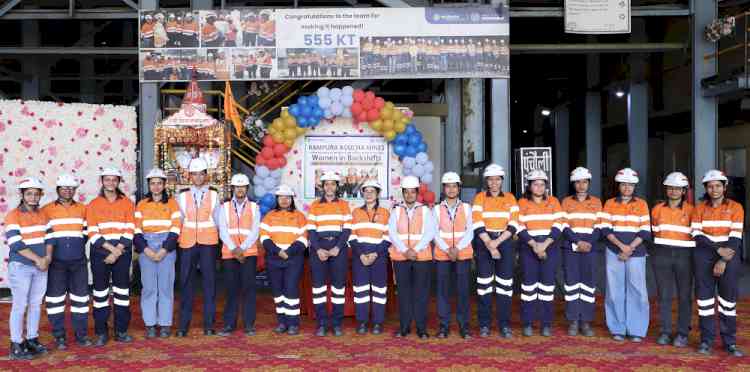Reliance Retail begins accepting govt's digital rupee for sales
Reliance Retail on Thursday announced it has begun accepting retail payments via the Indian government's Digital Rupee across its stores in the country.

Mumbai, Feb 2 (IANS) Reliance Retail on Thursday announced it has begun accepting retail payments via the Indian government's Digital Rupee across its stores in the country.
Reliance Retail launched the first in-store acceptance of the RBI-created and Blockchain-based Central Bank Digital Currency (CBDC) at its gourmet food store Freshpik here.
The CBDC is the a digital version of fiat money that will co-exist will hard cash.
"This historic initiative of pioneering the digital currency acceptance at our stores is in line with the company's strategic vision of offering the power of choice to Indian consumers," said V. Subramaniam, Director, Reliance Retail.
"With more Indians willing to transact digitally, this initiative will help us provide yet another efficient and secure alternative payment method to customers at our stores," he added in a statement.
Reliance Retail has collaborated with ICICI Bank, Kotak Mahindra Bank and fintech Innoviti Technologies to launch the in-store support for the digital rupee.
"Digital Rupee fulfils the need of consumers who still prefer the trust, safety and settlement finality of physical currency," said Rajeev Agrawal, Founder and CEO of Innoviti Technologies.
The RBI kicked off the first phase of a retail CBDC pilot in four cities and involving four key banks late last year.
A CBDC can play a key role in providing access to digital payments without the requirement of a bank account and the access would be facilitated by a central bank-issued digital wallet.
Use of e-rupee is expected to make the inter-bank market more efficient.
Settlement in central bank money would reduce transaction costs by pre-empting the need for settlement guarantee infrastructure or for collateral to mitigate settlement risk.
Going forward, other wholesale transactions, and cross-border payments will be the focus of future pilots, based on the learnings from this pilot project.


 IANS
IANS 








